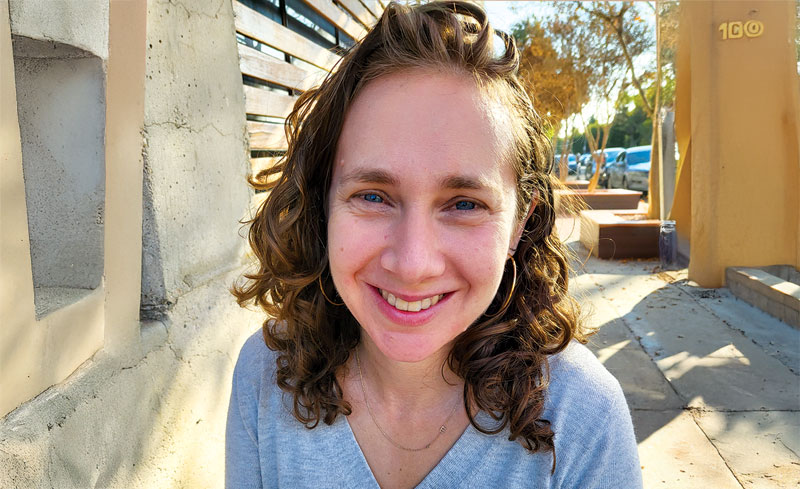Full disclosure: I have been thinking about the results of the Pew report for more than a decade. I understand that Pew didn’t release its results until last week, but these statistics and trends have been obvious to some in the Jewish community for a very long time. Four years ago, I made a major life change and became the president and CEO of The Jewish Federation of Greater Los Angeles because of the revelations now appearing in the Pew report. It is what drives our board, our staff and me every day, and it is what has motivated our Federation’s major reimagination and transformation. It is at the core of our mission and our work.
Over the past week, there has been a great deal of reaction to the study’s findings, ranging from defensiveness to rejection with a smattering of thoughtful responses. The truth is that we can no longer afford to look the other way. We must take a communal approach to building a Jewish community that will not just sustain but will flourish.
I love Judaism, the Jewish people and the State of Israel. I strongly believe that being Jewish adds immeasurable value to me, my family and our world.
We have a crisis. The numbers and the trending in the Pew report speak out loud and clear. Our crisis is not in the Middle East. It is in America. It is a crisis based on our success. We have truly succeeded in becoming American and in assimilating into this great country.
The resulting loss of engagement, however, impacts every Jew and every Jewish institution.
But this crisis also offers us an extraordinary opportunity.
What got us here won’t get us there
Marshall Goldsmith, one of America’s preeminent executive coaches, wrote an insightful best-selling book titled “What Got You Here Won’t Get You There.” The book’s central tenet provides us with a solid piece of Torah.
We, as a people, have built great synagogues and great organizations. We have created enviable Jewish communities across the Diaspora.
It is clear that what we have built did get us here, but it is now equally clear that if we want to ensure a vibrant Jewish future, that infrastructure may not get us there.
I say this with caution. This is not a time for a knee-jerk reaction, and there are no “innovative” quick fixes. This is a time to take a break from our preoccupation with our history to take a long, proactive look at the future, the future we want for the next generations. They are the loudest voices in the study. These voices demand to be in our communal conversations.
We need to learn from Apple
Steve Jobs and his crew understood almost from the beginning that once a consumer is introduced to the power of technology, he or she would be hooked. Once hooked, it was up to Apple to continue to deepen the relationship between the consumer and that technology by listening to the consumer and being ahead of the competition in introducing both new products and new applications.
We need to see Judaism like new and evolving technology, and we need to be more like Apple. We need to create a two-way conversation with our consumers, and we need to reimagine our product line.
This analogy speaks directly to our Millennials and the generations to come.
There is another central change we need to make. We have promoted “episodic” Judaism based on lifecycle milestones and communal events. Our institutions have promoted powerful programs like PJ Library, Taglit Birthright and Jewish preschool. Our Federation supports these important, highly successful programs. But what this study says loud and clear is that “episodic” Judaism is not enough.
We need to create a Jewish journey for every Jew, a journey that each Jew helps to create. Think of the iPod. Millions and millions of people use the same device to listen to their music but with customized play lists. They listen to their iPods alone, or they plug them into speakers and play for their friends in a communal experience.
We need to embrace our young people, not blame them
Our young people are redefining their Judaism. We need to be an active part of that redefinition process. It is up to the Jewish community to reach out, engage and embrace them.
At the Federation, we are committed to not just engaging our young people, but engaging them in our reimagination and our transformation. They are not the problem. They are a part of the solution.
Many of our organizations have built models based on philanthropy first. We need to move away from “pay-to-play” Judaism. If young people are meaningfully engaged, they will become philanthropists. But we are pushing too many of them away by expecting them to give before they connect.
The challenge
Our future demands our attention. We need a strong, communal approach to build a rich, vibrant Jewish future. The Jewish Federation of Greater Los Angeles has made the commitment to this process. Will you join us?
Jay Sanderson is president and CEO of The Jewish Federation of Greater Los Angeles.






















 More news and opinions than at a Shabbat dinner, right in your inbox.
More news and opinions than at a Shabbat dinner, right in your inbox.